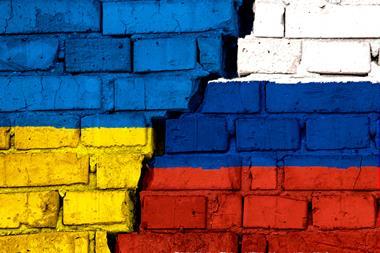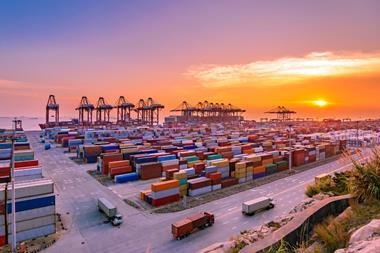A range of manufacturing activities across the globe will be affected by the logjams
Once again global supply chain pressures are on the rise, as disruption of commodity supplies stemming from the Russia-Ukraine war stoke more inflationary pressures, according to Oxford Economics.
With no end to the conflict in sight, it expects global supply pressures to persist into 2023, with the supply shock reverberating acutely in Germany and the US.
Moreover, even if the war should end, protracted sanctions mean that disrupted commodity trades with Russia won’t normalise quickly.
A range of manufacturing activities across the globe will be affected by the logjams, particularly those already facing significant shortages, such as semiconductors and chip-dependent sectors like automobiles. Construction firms are also directly hit by higher prices of energy and key construction materials due to disrupted supplies.
The protracted Covid lockdowns in China will further worsen global supply chain disruptions and cause ripple effects on consumers and businesses globally over the coming months. Asia production is especially vulnerable to the disrupted flow of Chinese intermediate goods.
However, Covid-related disruptions in China could be milder than the current Shanghai lockdown experience as the Chinese government fine-tunes its Covid policy. Still, it’s not hard to imagine widespread Covid outbreaks will result in harsher and more prolonged restrictions, creating further problems for global supply chains.
Persistent supply-chain constraints will sustain global price pressures this year, prompting many central banks to raise policy rates. But inflation could fall back in 2023, as the demand for goods normalises, tighter monetary conditions begin to bite, and the risk of a global recession rises.
Still, the intricate nature of supply chains suggests disruptions in some sectors will need more time to resolve, so inflation in many economies should remain above their 2015-2019 pre-pandemic averages in 2023. Oxford Economics currently forecasts global CPI inflation at 7.2% in 2022 and 3.5% in 2023.
Pinning down inflation effects
- 1
- 2
- 3
- 4
- 5
- 6
- 7
- 8
- 9
 Currently reading
Currently readingSupply chain disruptions persist, fuelling further inflation
- 10





























No comments yet